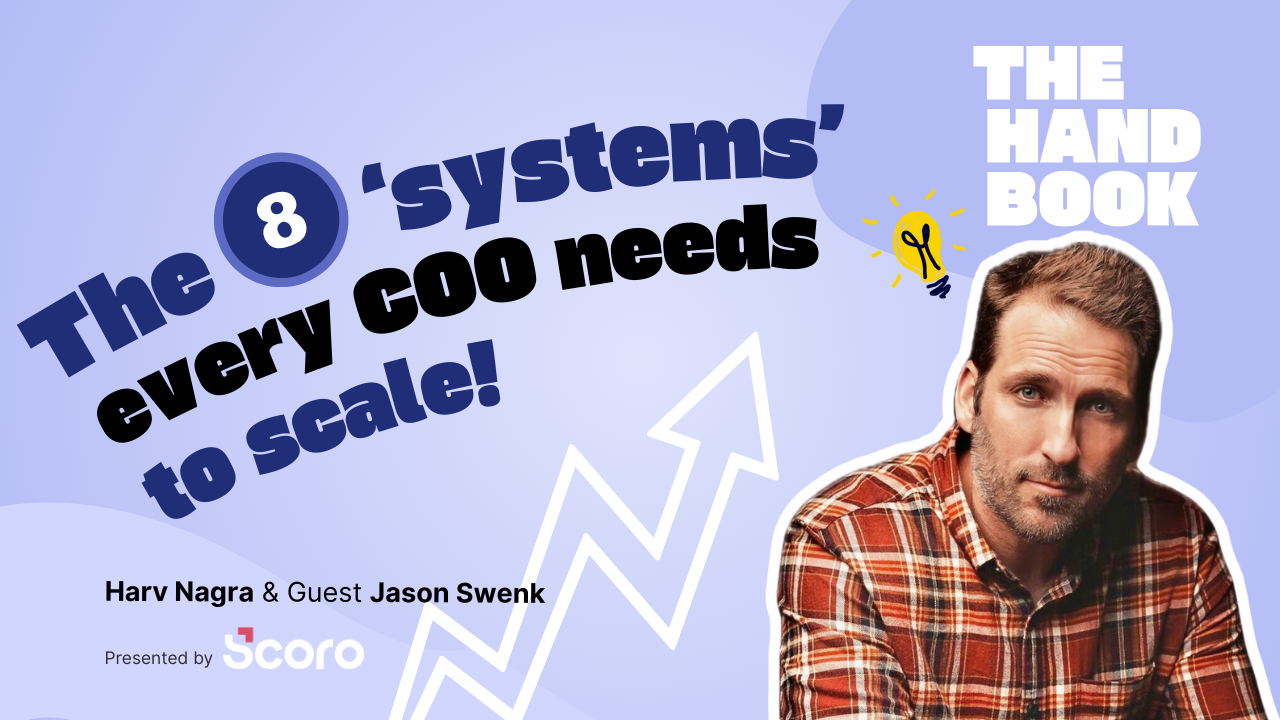Soulteam is an events services agency operating across the Baltics and Scandinavia. Their mission is to create events that matter, and they’ve organized more than 2,500 events over a 10-year history.
Clarity and Transparency Make for Happier, More Profitable Clients
Owner Triinu Toomela faces challenges in the day-to-day operations of Soulteam that will be very familiar to almost any agency owner, regardless of industry. But due to the dynamic nature of organizing events, managing costs correctly can be even more acute. How to ensure that your utilization is optimized and that you’re not ‘leaking’ hours due a lack of control, measurement, and structure in your workflows?
Luckily for Triinu, she’s found a solution: “Using Scoro provides a clear view of how much time you spend on each project and task, and what that relates to in terms of cost. We’re in a business where we sell our time and, when we started, we were in the red with our time measurements, and the hours we were selling.”
“There were big gaps in some projects. But now, our projects are all green! As a business owner, I see this as an opportunity to ensure that the working hours put into each project align with the money received for it.”
Overservicing and under-quoting are the twin destroyers of profitability, and both are often the result of simply not having the right insight into the operations of your company.
It’s Never Too Early to Start Implementing Software
Many agencies, especially small ones, feel that switching to a system like Scoro and changing what they bill their clients from a shot-in-the-dark guesstimate to a precise measurement of actual work done will be a difficult transition, but Triinu’s experience shows the opposite.
“Actually, what surprised me was how many hours I was spending when I started tracking my time. If I put those hours on the price offer or in the budget and show it to the client, they are usually okay with it because they can see how much work I am doing.”
“Before, when I estimated that something would take 20 or 30 hours, it was like I was doing magic. But now, I can track my time and say, “Last time it took us 40 hours, so this time we will put in 40, but if the client wants something extra, maybe five hours extra, we can add that to the budget. If we see that we are selling more hours than we actually need for the project, we can adjust the budget accordingly. Clients pay for what they get, which is really good.
As a huge bonus, Scoro also helps Triinu and Soulteam mitigate the dreaded scope-creep that keeps many agency owners awake at night: “One time, we had a situation where a client changed the event three or four times. But because we had measured the time and kept track of what we had done using Scoro, we could show the client how much time we had spent on each change. The client had nothing to say because we had evidence to back up our work. There was no need to argue about how much time we had spent.”
From Talented Freelancer to Agency Owner – A Familiar Journey

Soulteam – Triinu with Karin Saaliste (l) and Liis Siitan (r) – Photo by Erlend Staub
The Soulteam story started in a similar vein to many other small and medium agencies. Triinu was a successful project manager at an events service agency when the global financial crisis struck in 2008-2009. As the events service business took a major hit, she decided to quit her job with the intention of doing something entirely different.
As she explains: “Some clients that I had from the agency started phoning and calling asking me to help them, so basically, this was the point where I thought that I will do it as a freelancer, and we’ll just see where it goes. And after about two years I realized that I was so busy as a freelancer, that I needed help to keep up with the workload.”
At Scoro we like to refer to people like Triinu as Accidental CEOs; the people who are so good at what they do that client demand naturally aids an evolution from one-person-operation to agency. We’ve found that the challenges they face are almost universal. Clients pay for the personal touch, but the agency’s growing operational needs make it almost impossible to keep delivering this secret sauce, so everyone ends up unhappy.
According to Triinu: “I found myself in a situation where I had so much work to do that I couldn’t handle it alone. When it came to organizing things, I realized that I needed to hire employees and implement a system where all the necessary information was consolidated. This way, it would be quick and easy to find information, and everyone could complete their tasks without having to be in constant communication. From there, I began searching for operational and management tools.”
Over the years, the number of Scoro users at Soulteam has fluctuated between four and six, and Triinu is adamant that no team is too small to benefit from using work management software. As she explains, her philosophy is to plan big, even when you’re still small.
“From my point of view, if you’re starting a business, you should start it as if you’re already big. This is because when growth comes, it happens suddenly. If you wait until then to make changes, it will be too late and you’ll already be messed up. You’ll lose clients because the system doesn’t support you. While for us, our large clients are impressed that we have so many documented papers and processes already.”
How Clearly Defined Processes Drive Quality Delivery
Being passionate about the service you deliver to your clients is the foundation upon which the success of any agency is built, but ensuring that your employees execute their service delivery with the same standards and passion can end in a nightmare of micro-management, no matter how dedicated or hardworking they are. That is of course, unless you’ve documented and defined all your processes and ensured that they are repeatable.
As Triinu explains: “As my company grew, I needed to bring more people on board to keep up with demand. From my perspective, I want my clients to receive the same level of customer service and experience even if I am not personally involved in their project. Therefore, I can confidently assure my clients that they will still receive exceptional customer service no matter who they work with at our company.”
How ‘One Source of Truth’ Empowers Soulteam
Triinu is quite clear on where she feels the success of her operations lie: “Well, I would say that everything starts with Scoro. In our company, we have everything structured, scheduled and organized. And it’s not that everything looks organized from the outside while the inside is chaotic. I don’t believe in that. As a business owner, I believe that if I give our employees the platform where they can grow, they will perform better. I think that everything starts with this principle.
“If the inside is organized, then the outside can only be better. With Scoro, we have systems and productivity tools that help us operate efficiently.”
“Since we sell our time to clients on hourly rates, the more organized we are, the less time we spend, and the better prices we can offer. This system also helps our employees to work creatively without worrying about figuring out things themselves.”
Successful Process Implementation Starts From the Top
What would Triinu say to other event service agencies who do not use any work-management software? And who should take the lead on the implementation when they do decide to start using a tool?
“I would ask, “How have they managed?” Well, of course I can say that you can do business in any form, and with different systems. But as a business owner, I realize that I am responsible for implementing systems, strategies, and standards into our company. All the employees who come in follow my lead, and I give them systems, structures, and standards to operate, which helps them grow with the company.
“On the other hand, if I don’t have these kinds of regulated things, employees who come in might be confused about the working process. They may not know how to do things or where to put things. Therefore, as a business owner, I need to build up systems that work at first to make the company work.”





